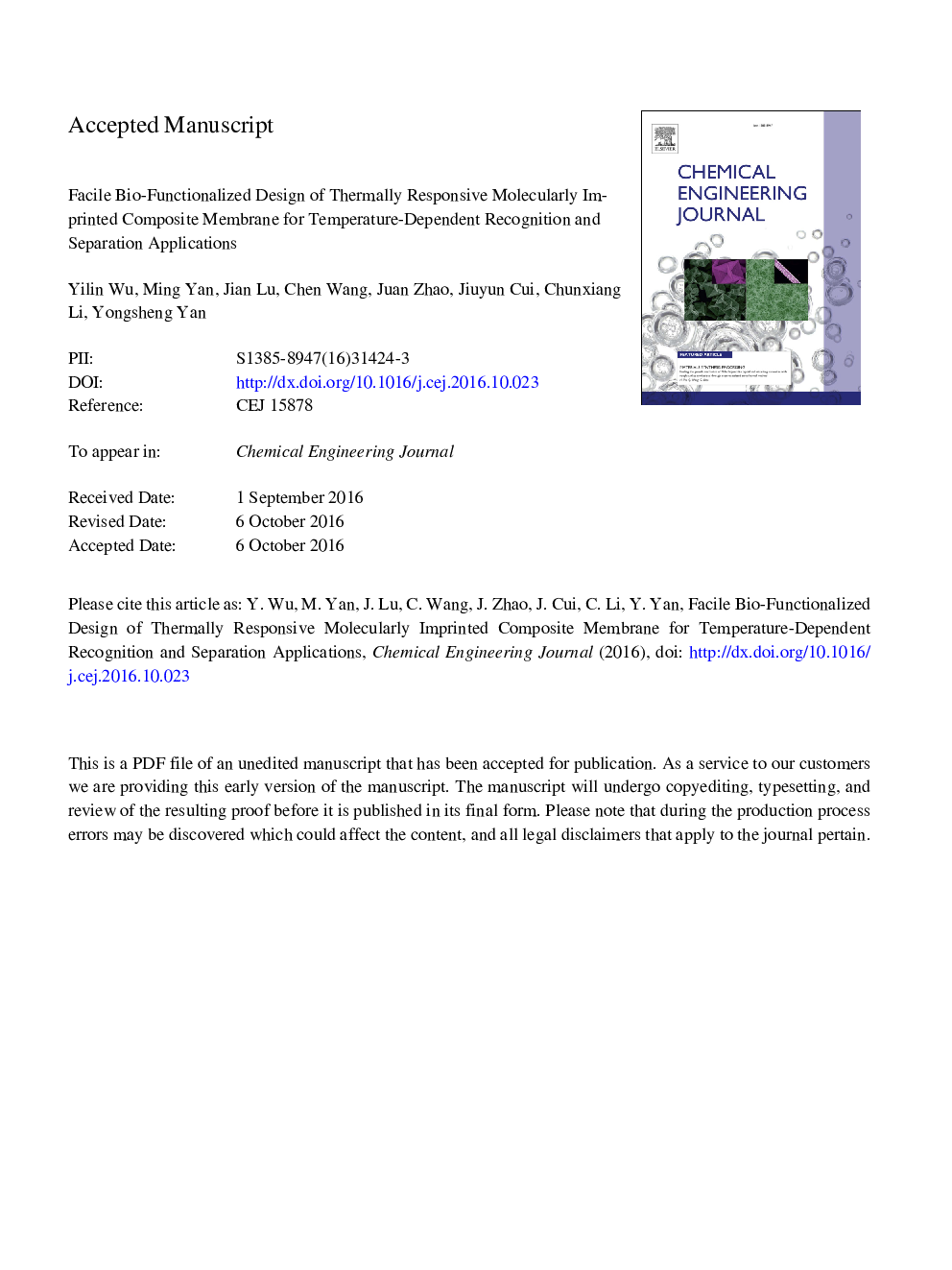| Article ID | Journal | Published Year | Pages | File Type |
|---|---|---|---|---|
| 4763653 | Chemical Engineering Journal | 2017 | 26 Pages |
Abstract
It is becoming significant needed that 'smart membranes' with specific recognition sites can rapidly change flow rates in response to external stimuli. Herein, inspired by a mussel-inspired two-step surface synthesis methodology, we have reported a novel system for harvesting thermally responsive molecularly imprinted composite membranes (TMICMs) with excellent selective adsorption and separation performance toward template molecules. A self-polymerized polydopamine coating process was initially conducted to obtain the highly adjustable active surfaces. The TMICMs were then prepared through an in situ photoinitiated ATRP method by using N-isopropylacrylamide (NIPAm) as the thermo-responsive backbone monomer. Attributing to the formation of the polydopamine coating surfaces, remarkably enhanced rebinding capacity (2.343 mmol cmâ2) was obtained. Importantly, the as-prepared TMICMs with thermo-responsive “specific recognition sites” also exhibited excellent temperature-dependent switching modes for selective recognition and separation of the template molecule (ciprofloxacin). Meanwhile, this bioinspired thermo-responsive method could not only present an outstanding permselectivity property (separation factor β was more than 4.0), but also showed excellent structural stability and adsorption regeneration performance (the TMICMs could still possessed 92.74% of the maximum adsorption capacity after four adsorption/desorption cycles). Finally, we envision that the developed bio-adhesive platform synthesis strategy employed in this case can be utilized in a broad range of applications and will have a great impact on the fields of fluid handling, thermo-responsive sensors, membrane-based drug delivery and separation.
Related Topics
Physical Sciences and Engineering
Chemical Engineering
Chemical Engineering (General)
Authors
Yilin Wu, Ming Yan, Jian Lu, Chen Wang, Juan Zhao, Jiuyun Cui, Chunxiang Li, Yongsheng Yan,
